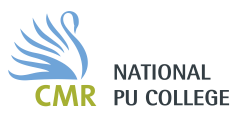Coronaviruses (CoV) are a large family of viruses that cause illness ranging from the common cold to more severe diseases such as Middle East Respiratory Syndrome (MERS-CoV) and Severe Acute Respiratory Syndrome (SARS-CoV). Coronavirus disease (COVID-19) is a new strain that was discovered in 2019 and has not been previously identified in humans. Coronaviruses are zoonotic, meaning they are transmitted between animals and people. In 2019, a new coronavirus was identified as the cause of a disease outbreak that originated in China. This particular virus was named “severe acute respiratory coronavirus 2” – or SARS-CoV-2 by the International Committee on Taxonomy of Viruses (ICTV). The disease it causes is called coronavirus disease 2019 (COVID-19).
Looking at MERS, scientists saw that the coronavirus enters cells using a protein known as a spike or an “S-protein”. After entering the cell, the virus starts delaying a normal, healthy immune response, allowing infection to brew in the body. The aim of scientists is to find a way to stop this so-called spike or S-protein from delaying the immune response. Other research teams are working towards a live vaccination that contains a weakened living microbe of the virus (like the flu vaccine).
It appears to spread from person to person among those in close contact. It may be spread by respiratory droplets released when someone with the virus coughs or sneezes. It may also be spread if a person touches a surface with the virus on it and then touches his or her mouth, nose or eyes.
Prevention is better than cure!
Although there is no vaccine available to prevent infection with the new coronavirus, you can take steps to reduce your risk of infection. WHO and CDC recommend following these precautions for avoiding COVID-19:
- Avoid large events and mass gatherings.
- Avoid close contact (about 6 feet) with anyone who is sick or has symptoms.
- Keep a distance between yourself and others if COVID-19 is spreading in your community, especially if you have a higher risk of serious illness.
- Wash your hands often with soap and water for at least 20 seconds, or use an alcohol-based hand sanitizer that contains at least 60% alcohol.
- Cover your mouth and nose with your elbow or a tissue when you cough or sneeze. Throw away the used tissue.
- Avoid touching your eyes, nose, and mouth if your hands aren’t clean.
- Avoid sharing dishes, glasses, bedding and other household items if you’re sick.
- Clean and disinfect surfaces you often touch on a daily basis.
- Stay home from work, school, and public areas if you’re sick, unless you’re going to get medical care. Avoid taking public transportation if you’re sick.
- Avoid eating raw or undercooked meat or animal organs.
- Avoid contact with live animals and surfaces they may have touched if you’re visiting live markets in areas that have recently had new coronavirus cases.
- Union Health Ministry has activated a toll-free 24×7 national helpline number, 1075, to address queries related to the infection. Anyone seeking information can also call on the number 011-23978046. The helpline e-mail ID for Coronavirus is ncov2019@gmail.com
The logic behind JANTA CURFEW.
As Coronavirus life at one place is 12 hrs and Janta curfew is for 14 hrs, so the places or points of public areas where corona may have survived will not be touched for 14 hrs and this will break the chain. So please do support!
By
NavyaShree

